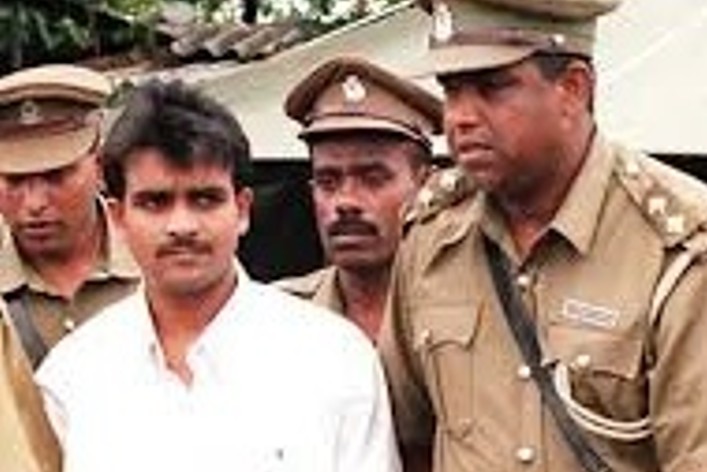Key Accused in Krishanthy Rape and Murder Case Willing to Testify Before International Inquiry
05-Aug-2025.

Lance Corporal Somaratne Rajapakse, convicted as the main perpetrator in the rape and murder of schoolgirl Krishanthy Kumaraswamy, is now reportedly willing to testify before an international investigation into the Chemmani mass graves in Jaffna. This revelation was made in a letter sent by his wife, S.C. Wijewikrama, to President Anura Kumara Dissanayake.
In the letter, she asserts that successive governments in Sri Lanka have consistently protected high-ranking military officials while scapegoating low-ranking soldiers, using their prosecution to present a façade of justice to the international community.
Wijewikrama states that her husband has been unjustly punished and urges the President to initiate a fresh, independent inquiry into the Chemmani case. She has also addressed similar letters to Prime Minister Harini Amarasuriya and Minister of Justice Harsha Nanayakkara, and intends to submit a communication to the United Nations Human Rights Council in the coming week.
The letter recounts that Rajapakse joined the Sri Lankan Army in 1990 and was deployed to Jaffna in 1996 under the 7th Battalion when the alleged incidents occurred. He was arrested in connection with the Chemmani mass graves and sentenced to death on September 3, 1998, by a special High Court panel. He has now spent 29 years in prison.
Wijewikrama insists that her husband was not involved in the rape or murder of Krishanthy or her family. Instead, she claims those crimes were carried out by military intelligence officers under Captain Lalith Hewage. According to her, Rajapakse and four others were ordered to bury the bodies of individuals who had been detained, tortured, and killed by these officers.
She adds that over 300 people are believed to have been detained and buried near the Chemmani checkpoint, yet only Krishanthy's case received international attention. She attributes this to the victim's connection to Kumar Rupesinghe, a well-known international human rights activist and brother-in-law of then-President Chandrika Kumaratunga. Following Rajapakse's testimony in 1999, several senior officers were arrested but were soon released on bail and the case was not pursued further.
Wijewikrama also recalls that human rights lawyer Kumar Ponnambalam visited her husband in prison and promised to take the case to the United Nations, but was assassinated shortly thereafter. She claims that President Kumaratunga exerted pressure on the Supreme Court to uphold Rajapakse’s death sentence, as retaliation for his court testimony exposing military intelligence involvement in Chemmani. Despite numerous appeals submitted to subsequent Presidents, no action was taken.
The letter challenges the plausibility that low-ranking soldiers with only a few years of service—such as Rajapakse and his co-defendants—could have orchestrated the mass arrests and killings attributed to them. She urges the current President to appoint a Presidential Commission to investigate the Chemmani incident properly and deliver justice to both the wrongfully convicted soldiers and the families of victims in the North.







